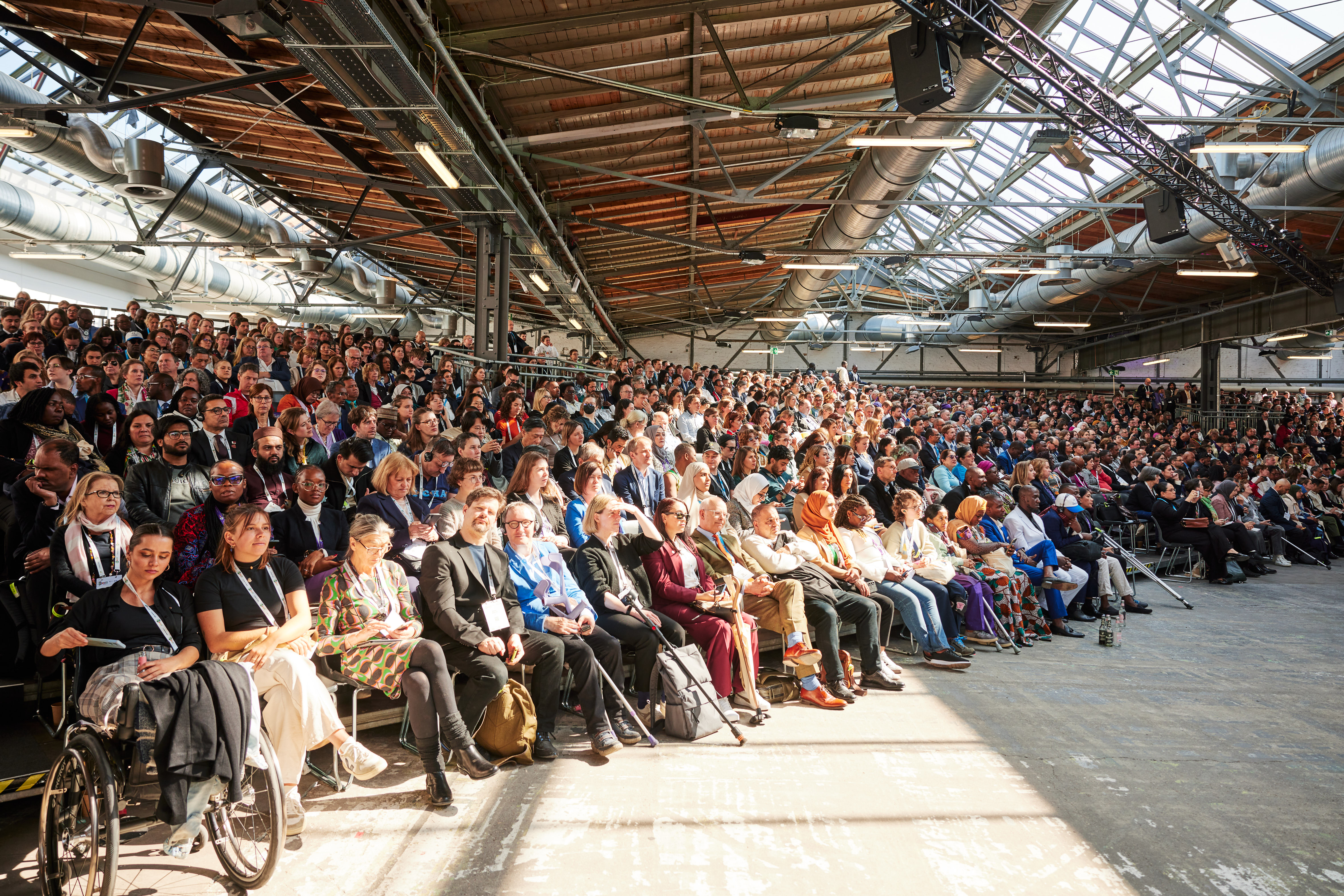The Berlin Global Disability Summit, 2-3 April 2025: Two Days of Debates on Global Inclusion

The Global Disability Summit (GDS) is a unique global platform dedicated to improving the lives of persons with disabilities, particularly in the Global South. Established in 2017, it brings together international, regional, and national stakeholders who share a common vision for inclusive disability development and humanitarian action. The summits aim to bridge the gap between two areas that have historically remained separate: disability inclusion and international development cooperation. The GDS is far more than a two-day summit held every three years; it represents an ongoing advocacy mechanism that engages global stakeholders to advance disability inclusion and mobilises the disability rights movement and its allies. Notably, the summit is a partnership between Member States and Organisations of Persons with Disabilities (OPDs), a principle reflected in its co-hosting arrangements.
The GDS is grounded in the United Nations Convention on the Rights of Persons with Disabilities (CRPD) and supports the implementation of the 2030 Agenda for Sustainable Development.
The third Global Disability Summit, held in 2025, built upon the achievements of the two previous summits and was co-hosted by the governments of Germany and Jordan alongside the International Disability Alliance (IDA), its permanent co-organiser. Convened as an in-person event in Berlin on 2–3 April 2025 (for more information go to these links Global Disability Summit 2025 - Day 1, Global Disability Summit 2025 - Day 2, Civil Society Forum Livestream), it attracted over 4,700 participants from more than 160 countries. With a strong focus on national ownership and inclusive international cooperation, the GDS 2025 concluded with the adoption of the Amman-Berlin Declaration and the announcement of 800 new commitments from governments, the private sector, and development partners to accelerate disability inclusion across all sectors.
The core programme and themes of the summit were finalised after two years of rigorous global consultations with OPDs and other stakeholders.
The primary aim of the GDS is to address the persistent exclusion and marginalisation of persons with disabilities worldwide. Its objectives include generating concrete political, programmatic, and financial commitments; strengthening the participation and leadership of persons with disabilities in decision-making; promoting inclusive policies, services, and systems; and encouraging coordinated and sustained international cooperation.
Since its launch in 2018, the GDS has driven significant progress in these areas.
The 2025 summit sought to consolidate and expand this momentum through a more innovative approach, guided by principles such as “Nothing About Us Without Us”, Focus on implementation and rights, national accountability, inclusive disability development, and bridging divides.
The opening ceremony of the summit took place at Berlin’s historic central railway station, where a vibrant exhibition showcased stands hosted by both profit and non-profit organisations committed to disability rights. Exhibitors presented innovative approaches in emerging technologies, artificial intelligence, and accessibility, alongside more traditional themes such as inclusive education and the rights of women and children.
During the pre-ceremony, participants highlighted key demands emerging from preparatory meetings held across continents. These included calls to end wars as a major driver of disability; to affirm inclusion as a non-negotiable human right; to prioritise accessibility as a precondition for exercising rights; to address all forms of intersectional discrimination; to combat segregation and institutionalisation; and to enhance commitments to social protection, independent living, inclusive education, and employment. Advocates also stressed the need to safeguard persons with disabilities from the effects of climate change, mainstream disability inclusion in broader policy frameworks, and create a global partnership that leverages financial and human resources to celebrate human diversity.
The opening ceremony underscored inclusion as a fundamental human right, countering policies hostile to diversity, such as those associated with US President Trump’s administration.
Nawaf Kabbara, President of the IDA, reinforced the urgency of amplifying the voices of all persons with disabilities.
The day concluded with remarks by Mary Keogh, Chair of the International Disability and Development Consortium (IDDC), who stressed that “the challenge of international cooperation is to recognise the human rights of persons with disabilities and implement them across all areas of rights”, lamenting the insufficient mainstreaming of disability in global action.
On the second and final day, discussions focused on pressing issues, such as declining international attention to the rights of women with disabilities, despite their increased participation in the summit and decision-making processes.
Contributions from Arab countries demonstrated growing engagement with previously overlooked topics, including independent living, active citizenship, inclusion, and participation, though China’s absence was notable. The summit also addressed the disproportionate risks faced by persons with disabilities in conflict zones and natural disasters.
One of the summit’s most significant outcomes was the adoption of the Amman-Berlin Declaration on Global Disability Inclusion, which establishes concrete goals for inclusive international development cooperation and humanitarian action. In his closing remarks, Nawaf Kabbara emphasised that “the final declaration is not a statement of commitments but an operational document. At the next Global Disability Summit in 2028, we will assess how these commitments have been implemented and expanded. This is, in essence, a platform to be used as a tool for advocacy.”
The IDA also stressed the urgent need to promote the rights of women and girls with disabilities, increase funding, and enhance female leadership, turning commitments into actionable projects.
In her address, Italy’s Minister for Disability, Alessandra Locatelli, concluded with a call to action: “Our communities must be not only inclusive but also economically sustainable for all, leveraging new technologies to create opportunities. We can act on two fronts: by promoting integrated policies that overcome the fragmentation between healthcare and social responses in favour of personalised projects that reflect individual aspirations; and by securing adequate, targeted resources to develop innovative, flexible services that support autonomy and independent living.”

